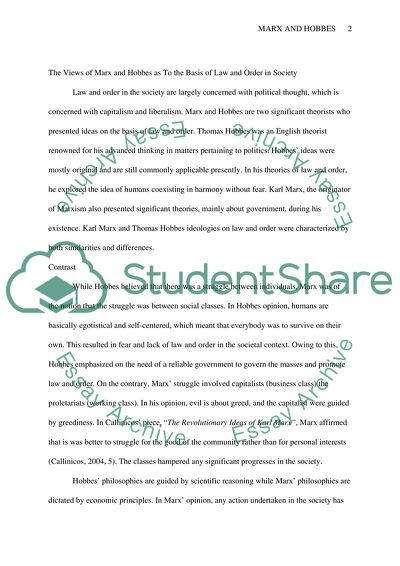Cite this document
(The Views of Marx and Hobbes as to the Basis of Law and Order in Society Report Example | Topics and Well Written Essays - 1250 words, n.d.)
The Views of Marx and Hobbes as to the Basis of Law and Order in Society Report Example | Topics and Well Written Essays - 1250 words. https://studentshare.org/sociology/1817472-contrast-and-compare-the-views-of-marx-and-hobbes-as-to-the-basis-of-law-and-order-in-society
The Views of Marx and Hobbes as to the Basis of Law and Order in Society Report Example | Topics and Well Written Essays - 1250 words. https://studentshare.org/sociology/1817472-contrast-and-compare-the-views-of-marx-and-hobbes-as-to-the-basis-of-law-and-order-in-society
(The Views of Marx and Hobbes As to the Basis of Law and Order in Society Report Example | Topics and Well Written Essays - 1250 Words)
The Views of Marx and Hobbes As to the Basis of Law and Order in Society Report Example | Topics and Well Written Essays - 1250 Words. https://studentshare.org/sociology/1817472-contrast-and-compare-the-views-of-marx-and-hobbes-as-to-the-basis-of-law-and-order-in-society.
The Views of Marx and Hobbes As to the Basis of Law and Order in Society Report Example | Topics and Well Written Essays - 1250 Words. https://studentshare.org/sociology/1817472-contrast-and-compare-the-views-of-marx-and-hobbes-as-to-the-basis-of-law-and-order-in-society.
“The Views of Marx and Hobbes As to the Basis of Law and Order in Society Report Example | Topics and Well Written Essays - 1250 Words”. https://studentshare.org/sociology/1817472-contrast-and-compare-the-views-of-marx-and-hobbes-as-to-the-basis-of-law-and-order-in-society.


